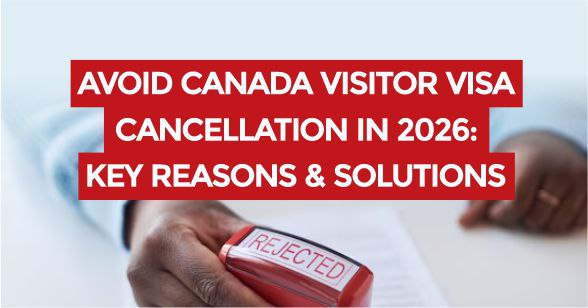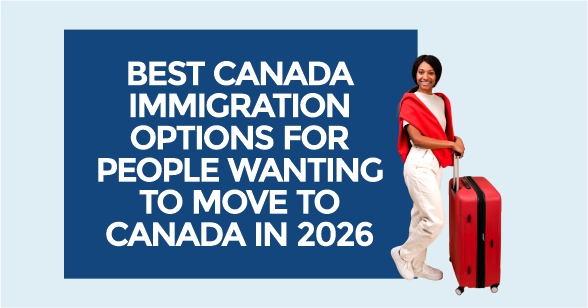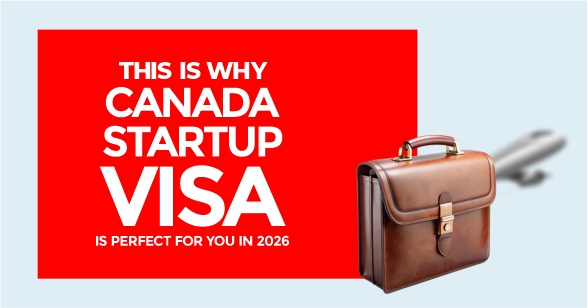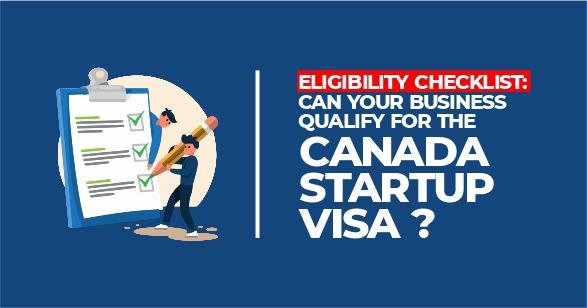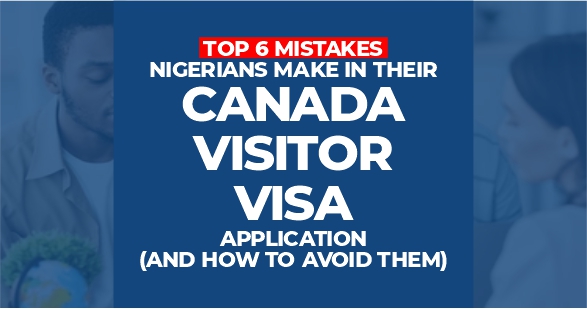Let’s be honest — Canada is on the lips of many Nigerians these days. From clean cities to quality education, stable economy, and peaceful living, it’s no surprise that getting Canadian Permanent Residency (PR) is a big dream for so many.
But here’s the challenge — in my 10+ years of helping clients move to Canada successfully, I’ve seen that too many people believe the wrong information.
They hear a Canada PR myth from a friend, see a post online, or get “advice” from an unlicensed agent, and take it as fact. The truth? Most of these are Canadian permanent residency myths that can stop you before you even start.
If you’re serious about moving to Canada, you should know that working with a licensed consultant can make all the difference. In fact, before you hire anyone, you should check out these 5 red flags to watch out for when choosing a Canadian immigration consultant.
In this post, I’ll break down 5 of the most common Canadian immigration PR myths — especially for those in Nigeria and other African countries — and tell you the real facts so you can make informed decisions.
Myth 1: “Canadian PR is only for people with many degrees and certificates.”
Many Nigerians believe this Canada permanent residency myth — that without a university degree, you can’t qualify. That’s not true at all.
Yes, education can give you extra points, but it’s not the only factor Canada considers. The Canadian immigration system looks at:
Work experience
Age
Language skills (English or French)
Adaptability
In some cases, business or investment capacity
Examples:
Skilled Trades Programs are designed for people like electricians, welders, and mechanics — no degree needed.
Some Provincial Nominee Programs (PNPs) prioritize job experience in occupations in demand.
Business Immigration Programs focus more on investment capacity and business experience. If you’re an entrepreneur, you can explore our guide on how Canada’s business immigration can turn your ideas into permanent residency.
So don’t rule yourself out because of education alone. Book an Evaluation Call with us and let’s see if you qualify.
Myth 2: “If you don’t have family in Canada, you can’t get PR.”
This Canadian permanent residency myth has discouraged a lot of good candidates.
Yes, having family in Canada can give you extra points, but it is not a requirement. Every year, thousands of people get PR without knowing anyone in Canada.
Here’s the reality:
Express Entry looks at your points, not whether you have relatives there.
Many PNPs invite candidates based on in-demand skills, not family connections.
Business immigration is based on your investment plan, not your bloodline.
If you want to see alternative ways people are successfully relocating, check out our article on 4 recommended ways to move from Nigeria to Canada in 2025.
Myth 3: “You must have a job offer to apply for PR.”
Another big Canadian immigration PR myth — and it’s one that stops many Nigerians from even trying.
A job offer can boost your score, but it’s not always required. For example:
The Federal Skilled Worker Program doesn’t require a job offer if your score is high enough.
Some PNPs nominate candidates without job offers if their skills are needed.
Investor programs are about your business capacity, not an employer.
Many people get Canadian PR and find work after they arrive.
📌 Be careful of scams where people “sell” Canadian job offers — these are often fraudulent.
If you’re considering going the entrepreneur route instead, you’ll want to avoid the biggest mistakes Nigerians make with Canada’s Startup Visa.
Myth 4: “If my English isn’t perfect, I can’t get PR.”
One of the most common Canadian permanent residency myths in Nigeria is that you must speak perfect English to qualify.
While you do need to take an approved English test (IELTS General Training) or French test (TEF Canada), you don’t need to be flawless. Even an average score can still work if you’re strong in other areas like age, work experience, or education.
Plus:
Speaking French can give you extra points, even if your English isn’t great.
You can always retake the test to improve your score before applying.
Language is important, but it’s just one piece of the puzzle.
Myth 5: “Once you get PR, you can live anywhere in the world and keep it forever.”
This is a Canada permanent residency myth that can cost you your status.
Getting PR comes with responsibilities. You must:
Live in Canada for at least 730 days (2 years) within every 5 years
Avoid serious legal issues
If your plan is to eventually become a citizen, you’ll need to spend at least 1,095 days (3 years) in Canada in the last 5 years before applying.
We’ve explained more about the importance of planning your PR journey in our 5 lessons from 10 years of providing Canadian immigration services.
Why Believing These Myths Can Hurt You
Falling for these Canadian permanent residency myths can:
Stop you before you even start
Lead you to spend money on fake promises
Make you apply through the wrong program
At Loft Immigration, we’ve seen so many Nigerians give up on their dream because of these myths — when in reality, they had a real chance.
Why Choose Loft Immigration
For over 10 years, we’ve helped Nigerians, other Africans, and clients worldwide get Canadian PR through:
Skilled worker programs
Study-to-PR pathways
Provincial Nominee Programs
Business and investor immigration
We’re not just giving you information — we’re licensed Canadian immigration consultants who know the rules inside out and keep up with every policy change.
Now that we’ve debunked these myths, here’s what you need to remember:
You don’t need endless degrees
Family in Canada isn’t a must
Job offers are helpful but not required
Your English doesn’t have to be perfect
PR comes with rules to follow
Don’t let Canadian immigration PR myths stop your dream. Work with Loft Immigration today to find out your real chances.
Frequently Asked Questions About Canada PR Myths
1. What is the most common Canada PR myth Nigerians believe?
One of the most common Canada PR myths Nigerians believe is that you must have multiple university degrees to qualify. While education can add points, Canada’s immigration system also values work experience, language ability, age, and other factors. Even people without a degree can qualify through programs like the Provincial Nominee Program or Skilled Trades Program.
2. Can I get Canadian permanent residency without a job offer?
Yes, you can. This is a Canadian immigration PR myth that discourages many people. While a job offer can increase your score, it’s not always required. Programs like the Federal Skilled Worker Program and many Provincial Nominee Programs allow you to apply without a job offer, as long as you meet the eligibility criteria.
3. Do I need family in Canada to get PR?
No, you don’t. A common Canadian permanent residency myth is that having family in Canada is mandatory. While family can add points to your application, many people successfully get PR every year without any relatives in Canada. Your skills, education, and work experience can be enough.
4. Can I apply for Canadian PR if my English isn’t perfect?
Yes. You don’t need perfect English to apply for Canadian permanent residency. You’ll need to take an English or French language test, but even average scores can work if you’re strong in other areas. This is one of the Canadian permanent residency myths in Nigeria that stops people from applying unnecessarily.
5. Is Canadian PR permanent even if I live outside Canada?
No. A dangerous Canada permanent residency myth is that you can live outside Canada and keep your PR forever. You must live in Canada for at least 730 days (2 years) in every 5-year period to maintain your PR status. If you plan to become a citizen, you’ll need to be in Canada for 1,095 days within 5 years before applying.
6. Can entrepreneurs get Canadian PR without traditional work experience?
Yes. Through business immigration programs, entrepreneurs and investors can get PR without traditional employment history. Canada has pathways like the Startup Visa and Provincial Nominee Programs that focus on your investment capacity and business experience, not just your job history.
7. How can I avoid falling for Canadian immigration PR myths?
The best way to avoid these myths is to get your information from licensed Canadian immigration consultants, not random online posts or unlicensed agents. At Loft Immigration, we’ve helped clients for over 10 years by giving them accurate, up-to-date information and guiding them through the right programs.
8. What’s the first step if I want to check if I qualify for Canada PR?
The first step is to book an immigration evaluation with a licensed consultant. This helps you know the exact pathways available to you based on your skills, education, work experience, and goals. 👉 Book an Evaluation Call with Loft Immigration today to know your o


